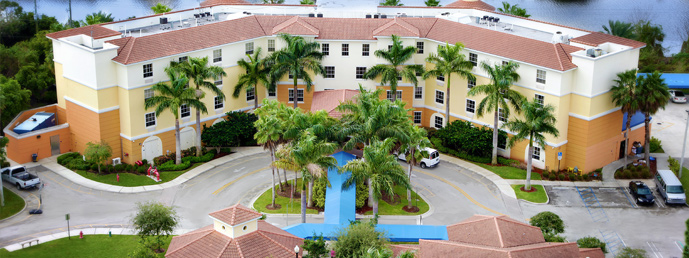Methods of Alcohol Addiction Treatment
The Watershed Addiction Treatment Programs
The Watershed of the Palm Beaches is licensed by the State of Florida and “Gold Seal” accredited by The Joint Commission for alcohol and drug treatment. This symbolizes value and illumines the dedication to meeting industry performance standards. We are a world-class health care facility that offers professional addiction treatment. Just two miles from beautiful Palm Beach County beaches, our rehabilitation center is the perfect setting to emerge refreshed and renewed.
Read More ›With alcohol being the most commonly abused substance of all, people needing treatment for alcohol abuse make up the largest number of those who go untreated for addiction problems. Though officially designated as a disease of the mind and body, alcoholism is a treatable condition. As such, a wide array of alcohol addiction treatment methods exists for those who do seek out needed treatment help.
Methods of alcohol addiction treatment encompass a continuum of services designed to treat the different stages of addiction. According to the Mayo Clinic, methods used can vary depending on the stage of treatment, some of which include –
- Detox treatment
- Inpatient treatment
- Residential care
- Outpatient treatment
- Sober living environments
Alcohol addiction treatment methods make ample use of psychosocial treatment interventions, support group models and medication-assisted therapies. Ultimately, the severity of a person’s addiction determines which alcohol addiction treatment methods will work best.
Psychosocial Methods
Psychosocial alcohol addiction treatment methods make-up a central part of the recovery process. While the body’s physical dependence on alcohol plays a pivotal role in addiction, the mind’s dependence on the effects of the drug can stay with a person for years after his or her last drink.
Psychosocial alcohol addiction treatment methods also address the specific challenges people in recovery face, such as unemployment, lack of education and homelessness. As any one of these areas can greatly impede a person’s progress in recovery, psychosocial treatments include interventions that work to help recovering alcoholics rebuild their lives.
Commonly used psychosocial methods include –
- Group therapy
- Individual psychotherapy
- Vocational assistance
- Job placement
- Housing assistance
Support Group-Based Methods

Support groups and group therapy are often part of alcohol abuse rehab.
While many may not consider 12-Step support groups to be a form of alcohol addiction treatment, 12-Step meetings can provide an ongoing source of guidance and support throughout the recovery process.
The traditional 12-Step model works off a series of steps or stages a person goes through to develop a drug-free lifestyle and mindset. These groups usually play an important role within all stages of treatment, including detox, inpatient, outpatient and aftercare.
The 12-Step model also forms the basis for other alternative types of support groups, some of which include –
- Women for Sobriety
- SMART Recovery
- Rational Recovery
As some people may not be comfortable with a the religious principles contained within traditional 12-Step groups, alternative groups tend to work from a more logic-based approach to the recovery process.
Medication-Assisted Therapies
Chronic alcohol use leaves more than a few recovering alcoholics dealing with withdrawal effects and cravings for months or years into recovery. In this condition, it wouldn’t take much for a person to relapse under stressful circumstances.
For these reasons, many alcohol addiction treatment programs administer medication-assisted therapies to help alleviate many of the aftereffects long-term alcohol use brings. Medications commonly used include –
- Revia
- Antabuse
- Campral
As these medications can bring much needed relief to people coming off a long history of alcohol abuse, they make it possible for a person to be more engaged in his or her recovery efforts.





